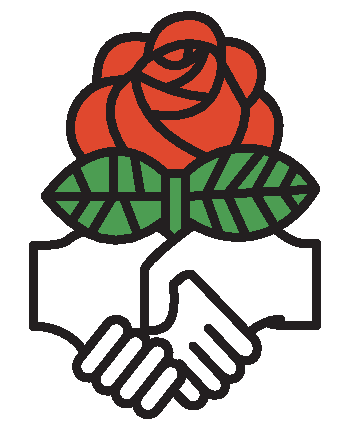The Impact of Migration on Women
Santo Domingo, Dominican Republic, 20 and 21 November 2009
Resolution
Migration is a complex issue and in order to fully understand its complexity it is necessary to point out the many different types of migration such as internal, international, temporary, permanent, legal, illegal, voluntary and forced migration. It is also important to understand the geographical differences of migration since the reasons for migrating can vary from region to region or from country to country. There is also a gender aspect to migration – out of 200 million international migrants, half are women – and the impact, the influences as well as the experiences of migration can differ for women and for men.
In some cases women migrants choose to move but the majority are forced to leave their regions or countries because of poverty, lack of opportunities, conflict, persecution, environmental degradation or natural disasters that affect their security and livelihood.
Women who choose to migrate will experience migration differently to women who are forced to migrate and the impact on the families and communities the women leave behind can differ depending on the reasons why they have migrated. Migration can also have an emotional and psychological impact on women when they migrate alone and leave behind their relatives and children. Women who migrate will have to start a new life in the country of destination, but if they are deported, they may have to leave behind their children, their belongings, and their home, which they have built with so much sacrifice. Very often, their children are put up for adoption for other families, which is a violation of their human rights.
In general, migration has an impact on the status and on the role of women. It is evident that women, who choose to migrate, integrate and adapt better to their region or country of destination. Their experiences can be positive and beneficial, whilst those who are forced to migrate can have a negative, painful and even traumatic experience. Whether it is a choice or not, the experience of migrating remains a challenge in terms of language, climate and cultural differences, along with the lack of appropriate laws and regulations to protect the rights of women migrants.
Women who are able to find employment in the region or country of destination can experience an element of economic independence and empowerment, which is not always the case back in their countries of origin where traditional cultural values or lack of employment, larger families etc. force women to depend financially on their partners and husbands. It can also be argued that gender inequality in their countries of origin can be a powerful factor in leading women to migrate especially when they have economic and political expectations that cannot be realised at home. As a consequence this situation can lead to changes in the relationship and family dynamics, as partners and husbands refuse or are unable to accept or adapt to the changes in which women have a substantial income or become the breadwinner. This shift in roles and responsibilities might be a sign of empowerment but it can also lead to additional pressure on women, who will have to balance between family responsibilities, domestic chores, care taking and ensuring financial security which increases their workload substantially.
Traditional gender roles regarding the place of women in society can also determine the sort of work migrant women do, which could lead to low paid jobs such as domestic work. The danger with these jobs is that women migrants can become isolated and more vulnerable to abuse from employers and in some instances are prevented from exercising their rights as workers. Furthermore, women admitted as workers are commonly concentrated in ‘female’ occupations such as nurses, nannies, cleaners, and low paid customer service assistants.
How women are defined at entering the country may also affect their social rights and entitlements, including the capacity to gain legal citizenship quickly. Studies have shown that women more often than men are denied full citizenship. However immigration laws and regulations of the country of destination influence the migration of men and women differently. Migration policies of receiving countries implicitly assume a ‘dependent‘ status for women and an ‘independent’ migrant status for men. Women are often classified by their relation to men with whom they migrate.
Another very important aspect of migration is the remittances sent by women migrants to their families back home which can be an important source of household income. Data from the World Bank for 2004 indicate that remittances received by developing countries amounted to US$126 billion, almost twice the amount of Official Development Assistance (ODA) and approximately 75 per cent of the total foreign direct investment. Unfortunately, there are no sex-disaggregated data to show women’s contribution to these remittances, but there is evidence that in some countries it is significant. In the case of Dominicans working in Spain, for example, as much as 78 per cent of all remittances were sent by women, even though they accounted for 61.4 per cent of migrants.
A serious impact of women’s migration is the care-drain on countries of origin, when nurses, midwives and female doctors migrate. While the World Health Organisation (WHO) recommends a ratio of 100 nurses per 100,000 inhabitants, in some African countries, this ratio has gone down to 10 per 100,000 inhabitants. At the same time, in some Scandinavian countries the ratio is as high as 2,000 nurses per 100,000 inhabitants.
A major cause for concern is trafficking of women and girls who are trapped into forced prostitution and other forms of exploitation which are a form of today’s slavery.
Therefore, the Socialist International Women:
Calls on governments to develop policies and programmes to enhance the access of migrant women to better employment opportunities, safe housing, language training , healthcare, counselling and other services;
Urges governments to ratify and implement all international legal instruments that promote and protect the rights of migrant women and girls;
Calls for the International Organisation of Migration (IOM) to assist national governments to ensure that their migration and development policies are gender sensitive and take into account the specific needs of women;
Calls on governments to improve relations and understanding between cultures and religions and help migrants to better integrate into their new communities and countries of destination;
Calls on governments to prevent punishment and deportation of trafficked women, and to develop strategies to protect and support them as well as to grant them their rights and
Urges governments to promote and support income generating projects which will help reduce the migration of women.
Finally, in order to create successful strategies SIW underlines the need for research and improved data collection to provide a basis for the formulation of gender sensitive migration policies and programmes.
_______________

